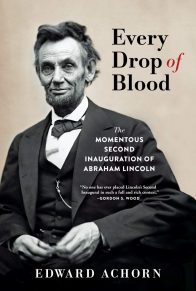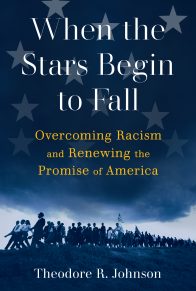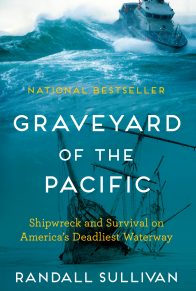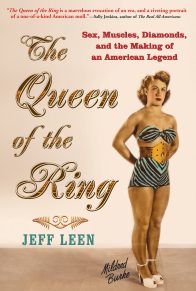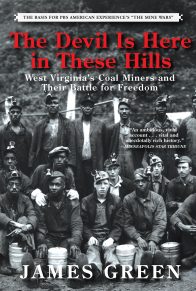“A great book. You just feel like you’re there in Chicago in 1860, which was an interesting place and an unbelievably interesting event. I highly recommend it.”—David Axelrod
“It is hard to imagine that any aspect of Abraham Lincoln’s life is understudied, but Edward Achorn has found one. The Lincoln Miracle offers a gripping account of the critical days in May 1860 when the underdog Lincoln snatched the Republican presidential nomination and ascended to the verge of national power . . . A provocative addition to the canon.”—Roger Lowenstein, Wall Street Journal
“An in-depth examination of Abraham Lincoln’s successful quest for the Republican presidential nomination at the convention of 1860 . . . Beautifully written, filled with vivid and easily digested prose . . . Achorn deftly lays out the personas, demographics and rivalries that shaped the nominating contest and the 1860 election . . . More than 150 years after Lincoln’s assassination, the embers of civil war still glow. The Lincoln Miracle is relevant reading indeed.”—Lloyd Green, Guardian
“For fans of political wheeling and dealing, who find brokered conventions, Electoral College forecasts, and the down-ticket impacts of state voting trends engrossing, this is a grand book documenting a milestone in the formation of the Grand Old Party. Achorn’s brisk, 400-page account is replete with all the bribery, patronage, rumors, back-stabbing, whiskey, cigars, and political calculus that went into the most consequential Presidential nomination in our history.”—National Book Review
“An exhaustively researched and detailed narrative of the ‘Lincoln Miracle’ . . . The Lincoln Miracle should stand as the definitive account of this epochal political moment in American history.”—Shelf Awareness (starred review)
“In 1860, long before American political conventions became quadrennial television spectacles with carefully orchestrated foregone conclusions designed largely to whip up enthusiasm among party faithful, the nascent Republican Party convened in Chicago’s Wigwam convention center with real business to conduct. Achorn follows the drama of that convention day by day, from May 12 through May 19, building on suspense as state delegations wavered back and forth . . . Achorn’s deep and energetic reconstruction of this momentous convention helps put in perspective the present political struggles over the nation’s future.”—Booklist (starred review)
“Historian Achorn details the raucous, exciting convention and the behind-the-scenes dealings that exemplified 19th-century conventions . . . This detailed account of the convention takes the boisterous proceedings day-by-day, giving readers an in-depth look at the convention that nominated Lincoln. This finely grained and well-written account will appeal to readers interested in Lincoln or American presidential and political history.”—Library Journal
“Our greatest president, Abraham Lincoln, would remain unknown to Americans if not for the Republican convention of 1860, and a roller-coaster week that changed the course of history. The Lincoln Miracle tells the inside story with precision and panache.”—Ted Widmer, author of Lincoln on the Verge: Thirteen Days to Washington
“A wonderful story! Anyone interested in the intricacies and ironies and the deal-making and horse-trading of American politics will love this book. Although Senator William Seward of New York was the overwhelming favorite to become the Republican Party’s presidential nominee at the Chicago convention in May 1860, Lincoln eventually prevailed. Edward Achorn rightly calls this the Lincoln Miracle, because, as he shows in rich and lucid prose, it was not just Lincoln’s shrewd and crafty operatives but also Lincoln himself, masterful politician that he was, who brought about that miracle. Although we all know the results of the Republican Party’s presidential nominating convention in 1860, Edward Achorn nevertheless has the uncanny knack of keeping us in suspense throughout all the days of the convention. With his prose rich and breathless in detail, Achorn truly makes Lincoln’s nomination seem to be a miracle.”—Gordon S. Wood, Pulitzer Prize-winning author of Empire of Liberty
Praise for Every Drop of Blood:
“Richly detailed . . . In elegant, episodic detail, Mr. Achorn captures both the immediate experiences of those who attended the inaugural and the recent memories that colored everything they saw and felt, heard and said.”—Adam Rowe, Wall Street Journal
“A lively guided tour of Washington during the 24 hours or so around Lincoln’s swearing-in . . . Achorn has a journalist’s gift for finding just the right quotation. He deftly fishes memorable descriptions—often less-than-flattering ones—out of 19th-century newspapers and diaries, especially as he introduces the most distinguished residents of the nation’s capital.”—Adam Goodheart, Washington Post
“A fascinating account of an address which entered the national consciousness . . . Achorn has done Lincoln justice, distilling the essence of the speech in a reflection Lincoln would have understood.”—John S. Gardner, Guardian
“Achorn, a noted editor and author, does a splendid job of recreating the atmosphere and experience of being in Washington on the day before and the day of Lincoln’s second inauguration. He has a gift for evocative, elaborate detail, and his descriptions of Washington—from a canal of stinking sewage to the new Capitol dome to the brothels and the various social functions—give readers a full flavor of the good and the plentifully ugly.”—Steve Forbes, Forbes
“An exemplary account of this critical moment in Lincoln’s presidency . . . Achorn’s innate ability to weave memorable stories and personalities together in Every Drop of Blood creates an intimate tale for readers. More impressively, it leads to a new chapter in this great president’s life that will stand the test of time.”—Washington Times
“A masterful narrative of the day, weaving together a cast of characters and events in a compelling work that reads like hands-on reportage from a writer who was on the scene . . . Achorn’s work is as epic as the topic deserves. His research is remarkable, telling the wider story through minute details and moments of deep meaning . . . A welcome addition to the voluminous canon of Lincoln books. Through these pages Achorn transforms readers into spectators of history as it unfolds.”—New York Journal of Books
“Achorn analyzes the speech as an artifact of its time and author. He tracks its imagery and explores how and why Lincoln chose the words he used . . . A good read in our own era, reminding us that no matter how badly divided we feel now, as a nation we’ve been through worse.”—Providence Journal
“Its strength lies less in the events themselves than in the elaborate detail and rich historical context that he musters . . . By the end, as well as mourning Lincoln’s fate, American readers might wish for another chance at politics without malice and with charity to all.”—Economist
“Drawing on historical wizardry—diaries, accounts, and memoirs—Achorn has assembled a prismatic portrait of that fateful day which reads like one long rolling dolly shot of history.”—Literary Hub
“[Achorn] skillfully plumbs his sources for colorful details and draws memorable character sketches. History buffs will savor this evocative narrative.”—Publishers Weekly
“The author provides rich description of a wide cast of people, including politicians, poets, soldiers, and nurses . . . A solid history that will allow readers to feel as if they are in the moment.”—Library Journal
“A vigorous, fresh look at a critical time in American history.”—Kirkus Reviews
“Achorn provides a rich, heavily psychological portrait [of Lincoln] . . . A moving chronicle of the country on the eve of assassination.”—Booklist
“It is hard to imagine anyone saying anything new about Abraham Lincoln, the most written-about figure in American history. But Edward Achorn has done it. No one has ever placed Lincoln’s Second Inaugural in such a full and rich context as he has. Achorn recreates the sights, sounds, smells, and the feel of everything, and his Lincoln was never more real. This is the work of a superb imaginative historian.”—Gordon S. Wood, Pulitzer Prize-winning author of Empire of Liberty
“This richly detailed account of the events surrounding Lincoln’s second inaugural address focuses on the many notable and obscure personalities present in Washington as the Civil War neared its end, including such opposites as Frederick Douglass and John Wilkes Booth, whose lives intersected with Lincoln’s in dramatically contrasting ways.”—James M. McPherson, Pulitzer Prize-winning author of Battle Cry of Freedom
“A lively, highly readable account of the people, events—and threats—surrounding Lincoln’s second inauguration.”—Joanne Freeman, author of The Field of Blood: Violence in Congress and the Road to Civil War
“Prize-worthy. Achorn is erudite and empathetic, and the book is chock-full of information and telling insights. Achorn sets the scene for the greatest inaugural address in American history.”—Frank J. Williams, founder of The Lincoln Forum and author of Judging Lincoln
“A magisterial analysis not only of Lincoln’s second inaugural but of the context in which it was given. Achorn’s keen eye for the meaningful detail reveals new layers of meaning to both a familiar speech and the divided nation that received them. His gift for telling a good story makes it a must read for historians and general readers alike.”—Maury Klein, author of Days of Defiance and A Call to Arms







